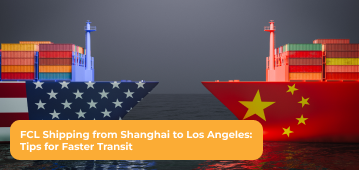Exploring the Pros and Cons of Cross-Trade Shipping | ECU360
Introduction:
Cross-trade shipping, also known as triangulation or drop-shipping, has become a popular supply chain option for businesses in recent years. It involves the movement of goods between two foreign countries without passing through the shipping country. While cross-trade shipping has benefits, it also presents challenges. So, explore Pros and Cons of Cross-Trade Shipping.
Pros of Cross-Trade Shipping:
- Cost Savings: Cross-trade shipping can result in significant cost savings for businesses by eliminating the need for goods to travel through the shipping country. This means businesses can avoid additional transportation fees, customs duties, and taxes, making it an attractive option for those looking to optimize their supply chain costs.
- Increased Flexibility: Cross-trade shipping allows businesses to source goods from countries that may not have been possible otherwise. This gives them more sourcing options, which can be especially beneficial when dealing with limited availability or short supply goods.
- Improved Efficiency: By eliminating the need for goods to pass through a third country, cross-trade shipping can reduce transit times and minimize the risk of delays or disruptions, improving supply chain efficiency.
- Competitive Advantage: Cross-trade shipping can provide businesses with a competitive advantage in their industry, particularly for those reliant on fast turnaround times or just-in-time delivery.
Read More: [Cross-Trade Shipping – Everything You Need to Know]
Cons of Cross-Trade Shipping:
- Complexity: Cross-trade shipping is more complex than traditional shipping methods, involving multiple parties like freight forwarders, customs brokers, and carriers. This can make it harder to manage supply chain operations and ensure goods arrive on time and in good condition.
- Higher Risk: Cross-trade shipping is riskier than traditional shipping methods, as it involves multiple countries and jurisdictions, increasing the risk of delays, damage, theft, and other issues that can impact the overall supply chain.
- Language and Cultural Barriers: Cross-trade shipping can be complicated by language and cultural barriers, requiring businesses to navigate different languages, customs, and business practices that can make communication and relationship-building with suppliers and customers more difficult.
- Legal Compliance: Cross-trade shipping is subject to complex legal requirements, including customs regulations, import/export laws, and international trade agreements, which can make it harder for businesses to ensure compliance and avoid penalties or fines.
Conclusion:
Cross-trade shipping can offer significant benefits to businesses, such as cost savings, flexibility, efficiency, and competitive advantage. However, businesses should be aware of the challenges that come with this supply chain option, including complexity, risk, language and cultural barriers, and legal compliance. By carefully weighing the pros and cons of cross-trade shipping, businesses can make informed decisions that help them achieve their supply chain goals.
Like
Related Blogs

Electronics & Technology: Ensuring Safe FCL Shipping Across Borders

FCL Shipping from Shanghai to Los Angeles: Tips for Faster Transit



N/A